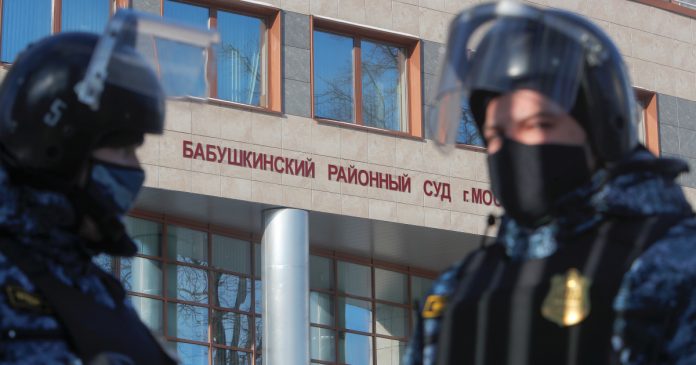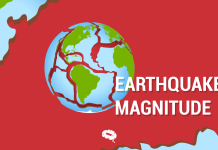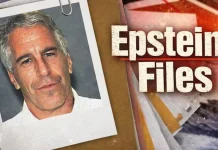[ad_1]
Russia has announced the expulsion of diplomats from Sweden, Germany and Poland, accusing them of taking part in illegal protests last month against the jailing of Kremlin critic Alexey Navalny.
The foreign ministry said in a statement on Friday that Moscow considered the actions of the diplomats unacceptable and that it expects diplomats from the countries to “strictly follow the norms of international law” in the future, as tensions between the Kremlin and the West ratchet up,
The ministry said the unspecified number of individuals who “took part in illegal protests were declared persona non grata” and “ordered to leave Russia in the near future”.
The move came hours after the European Union’s top diplomat, Josep Borrell, met with Russian foreign minister Sergey Lavrov in Moscow.
Borrell “strongly condemned” the action, a spokesman said, while Sweden branded it “completely unfounded”.
Navalny’s jailing has prompted mass nationwide demonstrations and condemnation from the EU and several Western nations, with calls for sanctions on Russia growing in Europe. Moscow has so far brushed off the foreign criticism as external interference, accusing the West of hysteria and double standards.
Borrell, the EU’s high representative for foreign affairs and security policy, said on Friday that the bloc’s ties with Russia had plunged to a new low point following Navalny’s sentencing earlier this week.
“Our relationship is indeed in a difficult moment,” he told Lavrov, adding that EU-Russia ties are “under severe strain and the Navalny case is a low point.”
Al Jazeera’s Aleksandra Godfroid, reporting from Moscow, said Russia was “raising the stakes” with its move to expel the diplomats.
“It wants to send a very clear message that they [Russian authorities] are not going to listen to the messages and requests coming from the EU regarding Navalny, his court hearings or regarding demonstrations and rallies here in Russia,” she said.
Navalny in court again
Navalny, Russian President Vladimir Putin’s most prominent opponent, was jailed on Tuesday for almost three years over alleged parole violations of a suspended sentence linked to a 2014 embezzlement case, which he has said was politically motivated.
He was initially arrested on January 17 upon returning to Russia from the German capital, Berlin, where he spent five months recovering from an alleged nerve-agent poisoning he blames on the Kremlin.
The Kremlin denies involvement in the August 2020 incident and says it has seen no evidence Navalny was poisoned.
The 44-year-old appeared in court again on Friday morning to face charges he slandered a World War II veteran who took part in a promotional video backing last year’s reforms that allow Putin run for two more terms in the Kremlin after 2024.
Navalny described the people in the video as traitors without a conscience and as corrupt lackeys.
The politician on Friday slammed the new hearing as a “disgusting PR trial” intended by the Kremlin to disparage him.
If convicted, Navalny faces a fine or community service.
Macron, Biden weigh in
The hearing came after French President Emmanuel Macron and US President Joe Biden issued scathing statements on Thursday over Russia’s handling of Navalny’s case.
Macron, for his part, said the Kremlin critics’ jailing, which has prompted protests in towns and cities throughout Russia, was a “huge mistake” for the latter’s stability.
“The Navalny case is a very serious situation,” Macron told an online forum sponsored by the Atlantic Council, a Washington-based think-tank, from the Elysee Palace in Paris.
The French leader added it was important to remain engaged with Moscow, however.
“I advocate ongoing dialogue because you have to deal with your history and geography. Russia is part of Europe,” he said.
Biden, meanwhile, said on Thursday that the US would no longer be “rolling over in the face of Russia’s aggressive actions” and his officials said they would take action against Moscow over Navalny and for other “malign” behaviour.
The Kremlin on Friday lashed out against Biden’s comments, slamming them as “aggressive and unconstructive rhetoric”.
“We’ve already said that we will not heed patronising statements of this sort,” said Putin’s spokesman Dmitry Peskov.
The Kremlin has also said recent protests over Navalny’s arrest which saw tens of thousands take to the streets in towns and cities across Russia were broken up by police because they were illegal.
More than 10,000 people have been arrested for taking part in the demonstrations, according to protest-monitoring group OVD-Info.
[ad_2]
Source link











